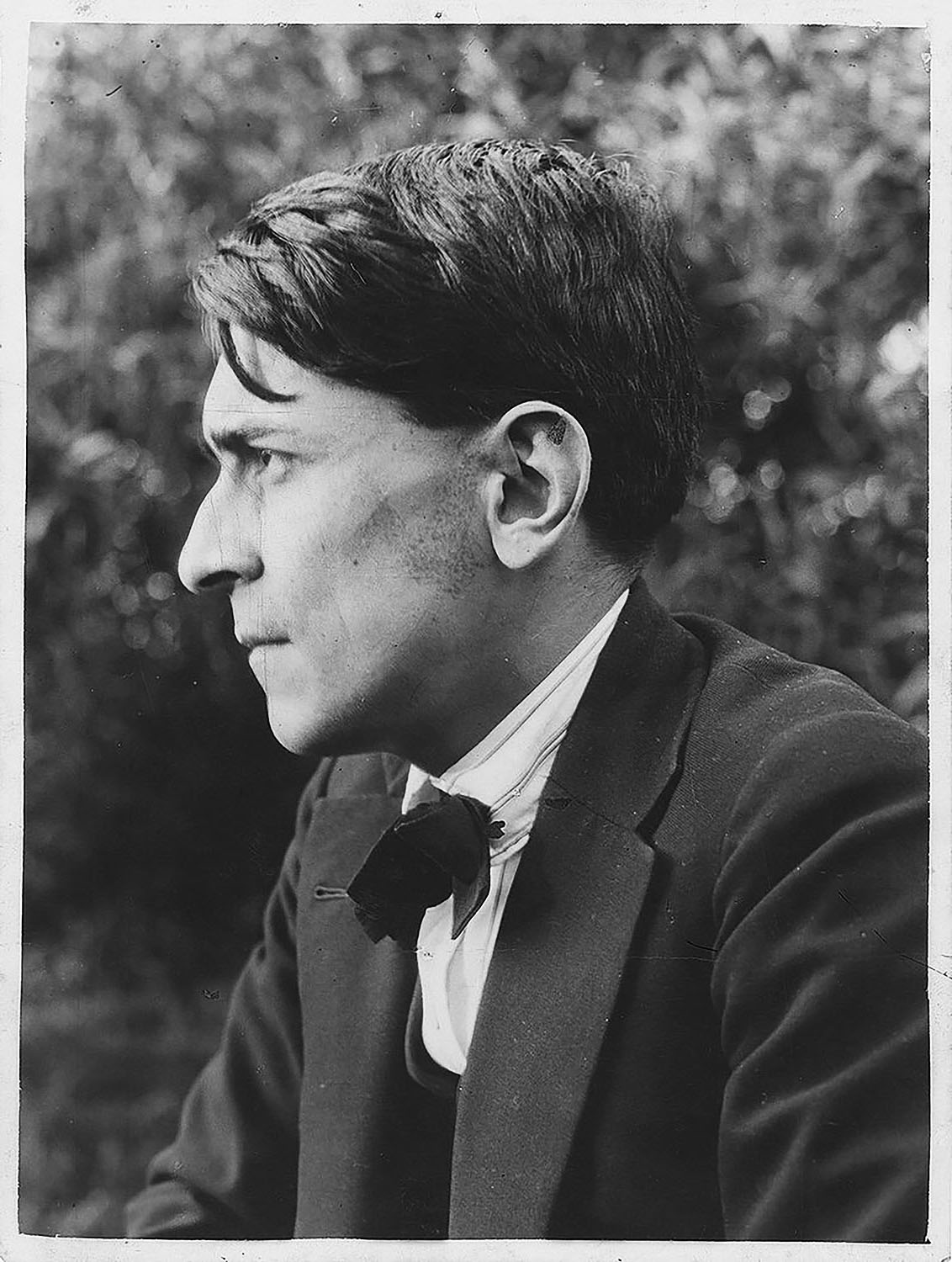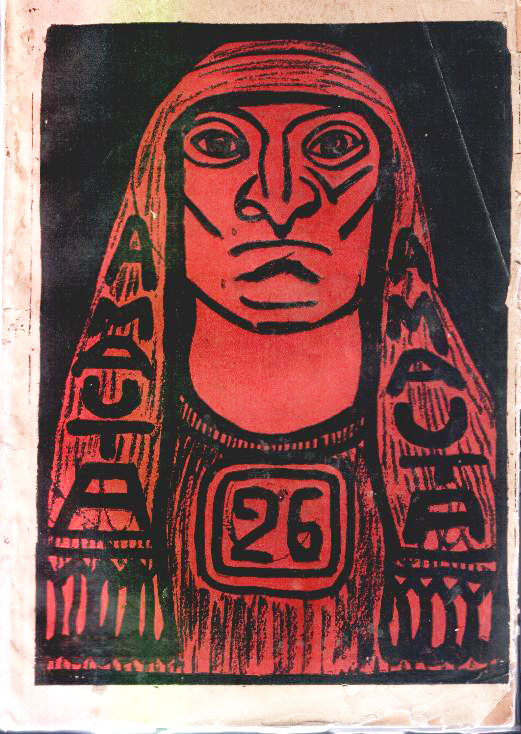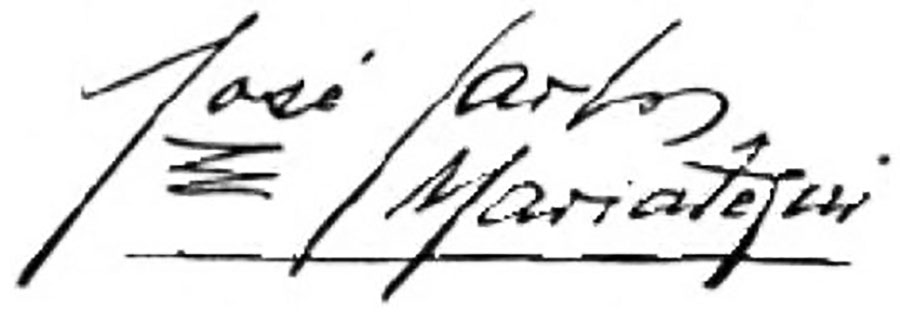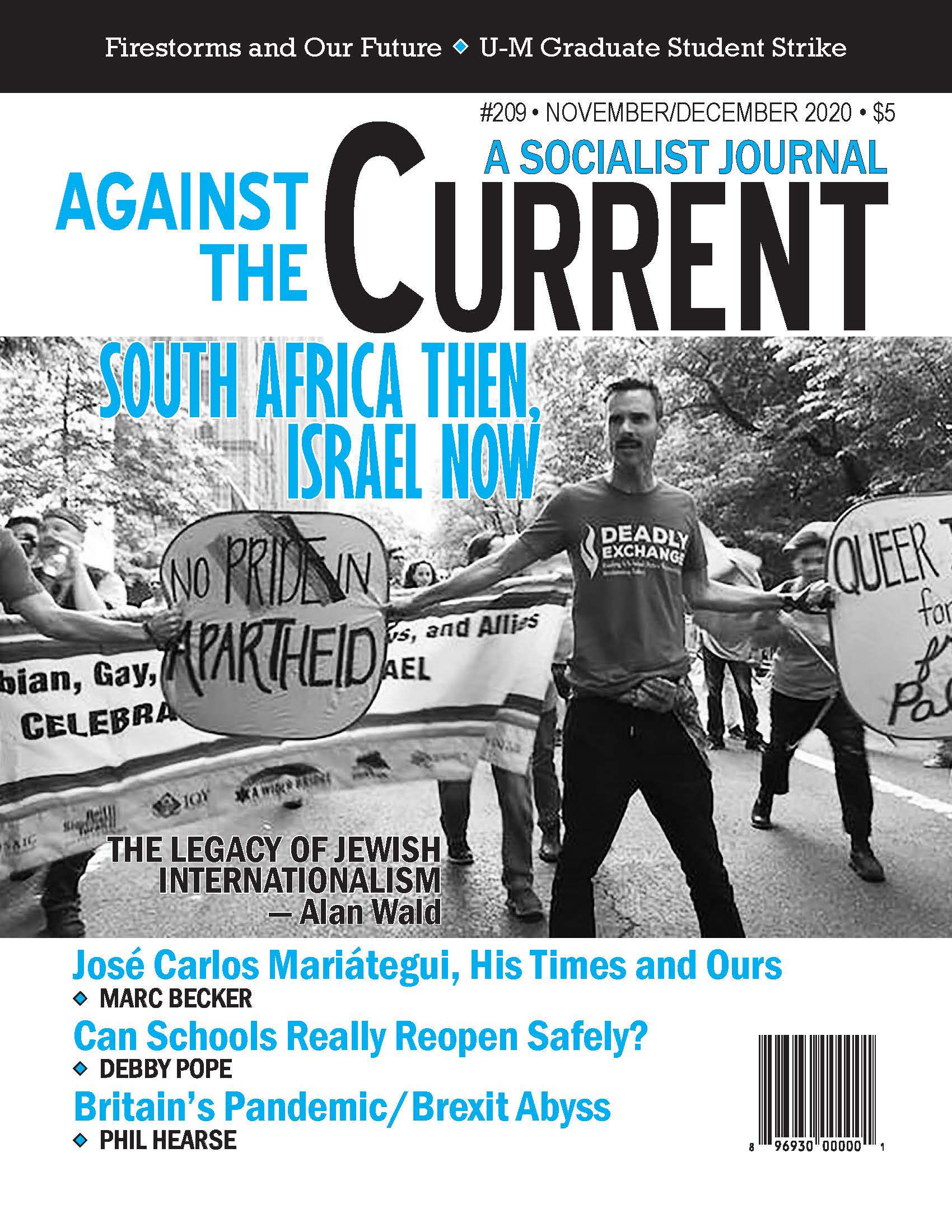Against the Current No. 209, November/December 2020
-
USA on the Brink?
— The Editors -
Aiding & Abetting U.S. War Crimes: Great Britain & Julian Assange
— Clifford D. Conner -
The U.S. Criminal Legal System
— Malik Miah -
Can Schools Really Reopen Safely?
— Debby Pope -
We Protect Us -– U-M GEO Strikes Back
— Kathleen Brown - Education, Not School-to-Prison Pipeline
-
The McCloskeys as Keynoters
— Dianne Feeley - Bolivia Coup Repudiated
-
Firestorms and Our Future
— Solidarity Ecosocialist Working Group -
Johnson Crashes Britain Toward the Abyss
— Phil Hearse -
José Carlos Mariátegui: Pioneering Latin American Marxist
— Marc Becker - Legacy of Struggle
-
On Jewish Revolutionary Internationalism
— Alan Wald -
Fragments from a Past
— Jeffrey L. Gould - Reviews
-
Lea Tsemel, Advocate for Justice
— Lisa Hajjar -
The Relevance of Marxist Critique
— Matthew Beeber -
Studying Petrograd in 1917
— Ted McTaggart -
The Political Economy of Struggle
— William Bryce -
Facing Our Dangerous Moment
— Steve Leigh -
A Brief Interview with Julie Sze
— Steve Leigh -
Education in Indigenous History
— Sergio Juarez - In Memoriam
-
Nettie Kravitz, 1921-2019
— Peter Glaberman
Marc Becker

WRITING IN THE 1920s, the Peruvian Marxist José Carlos Mariátegui introduced a uniquely Latin American perspective on revolutionary socialist movements and theories. He famously noted, “we certainly do not want socialism in America to be a copy. It has to be a heroic creation.”(1) This political dynamism is what made him into an intellectual force with lasting relevance.
Mariátegui’s voluminous and perceptive writings as well as extensive political activism left an unmistakable and lasting impression on the political, social, and intellectual landscape of his country. Nevertheless, even as he has retained central importance for revolutionary socialism in Latin America, in the United States few people are aware of his contributions.
When Mariátegui died in 1930, his funeral turned into one of the largest processions of workers ever seen in the streets of the capital city of Lima, but in the United States his death was hardly noticed.
Waldo Frank, a prominent left-wing U.S writer, the first chair of the League of American Writers and a close friend of Mariátegui, declared that Mariátegui’s death plunged “the intelligentsia of all of Hispano-America into sorrow; and nothing could be more eloquent of the cultural separation between the two halves of the new world than the fact that to most of us these words convey no meaning.”(2)
Despite this lack of attention in the United States and writing a century ago and on a different continent, Mariátegui’s thought remains relevant for the struggles we face today.
Early Life
José Carlos Mariátegui was born June 14, 1894 in the southern Peruvian coastal town of Moquegua and grew up on outskirts of Lima. He was raised by a poor and deeply religious mestiza (mixed race) single mother, Maráia Amalia LaChira. She had separated from her husband, Francisco Javier Mariátegui, because, when she discovered that he was the grandson of a liberal independence hero, she wanted to protect her children from that liberal influence.
This did not prevent her son from becoming the leading Marxist thinker in Latin America, but it did seem to temper his attitudes toward religion.
Mariátegui was a poor and sickly child. He suffered from tuberculous, and when he was eight years old he hurt his left leg, disabling him for life. Because of a lack of financial resources, he only managed to achieve an eighth-grade education. As a result, he was largely self-taught, which later led him to quip that he was an intellectual at odds with the intellectual world.
Rather than continue his education, Mariátegui was forced to find a job to help support his family. At the age of 15, he began to work as a copyboy for the newspaper La Prensa. He soon rose through the ranks in the newsroom as he began writing and editing as well.
These experiences introduced him to the field of journalism, which he subsequently used both for his financial livelihood and as a vehicle to express his political views. Almost all of his voluminous writings originated as relatively short pieces that he penned for popular magazines.
Drawing on this journalistic experience, Mariátegui launched two short-lived newspapers, Nuestra Epoca and La Razón, that assumed an explicitly pro-labor perspective. His vocal support for the revolutionary demands of the workers soon ran him afoul of the Peruvian dictator Augusto B. Leguía, who in October 1919 exiled him to Europe.
Mariátegui later calls this early period of his life his “stone age” and ignored the literary output that resulted from it. As a result, his early writings have received little attention.
Marxism and Amauta
It was during his three-and-a-half-year sojourn in Europe that Mariátegui developed into a Marxist intellectual. Through a series of experiences in France and Italy he saw the revolutionary potential of Marxism. This trajectory and orientation later led his critics to condemn him as a “Europeanizer,” a rather ironic criticism for someone who has come to be generally applauded for adopting Marxist theories to a Latin American reality.
Mariátegui later commented that in Europe he picked up some ideas and a woman, the Italian Anna Chiappe with whom he subsequently had four children — all boys.
In 1923, Mariátegui returned to Peru “a convinced and declared Marxist.” He presented a series of lectures on the “history of world crisis” at the González Prada Popular University in Lima that drew on his experiences and observations in Europe.
He was a popular lecturer, but because of his lack of an academic degree he could not get a regular teaching appointment at the main San Marcos University. Indeed, he was an intellectual at odds with the intellectual world.
In 1924, the police arrested Mariátegui because of his alleged subversive activity at the González Prada Popular University. A strong international reaction led to his release, perhaps reinforcing in his mind the importance of the international dimensions to a socialist struggle.
In 1924, Mariátegui lost his (good) right leg, and as a result spent the rest of his life in a wheelchair. Even as his health failed (or perhaps because of that), both his intellectual output and efforts to organize a social revolution intensified.

Among Mariátegui’s literary activity, the most significant was the founding in 1926 of the journal Amauta (which means “wise teacher” in Quechua) as a vanguard voice for an intellectual and spiritual revolution. The journal moved beyond politics to include philosophy, art, literature, and science.
Amauta was a relatively high-brow publication that gained international renown. Two years later, Mariátegui launched a short-lived biweekly newspaper appropriately titled Labor as an extension of Amauta to reach out to the working class.
In 1928, Mariátegui published his most famous book 7 ensayos de interpretación de la realidad peruana (Seven Interpretive Essays on Peruvian Reality). The essays provide a broad sociological overview of key issues facing Latin America: economics, racial problems, land tenure, education, religion, regionalism and centralism, and literature (the last and by far the longest essay in the collection). This book quickly became a fundamental work on Latin American Marxism and established him as a founding light of Latin American Marxist theory.
In terms of his political activity, in 1928 Mariátegui founded the Peruvian Socialist Party (PSP), served as its secretary-general and brought it into alignment with the Communist International as a vanguardist party designed to lead the proletariat to revolution. With that goal in mind, the party organized communist cells all over country. In 1929, the PSP launched the General Confederation of Peruvian Workers (CGTP) as a Marxist-oriented trade union federation.
During this entire time, Mariátegui continued to run into political problems with the Leguía regime. Mariátegui attacked working conditions at the U.S.-owned Cerro de Pasco copper mine and Leguía feared that he was inciting workers.
In 1927, the police arrested and detained him for six days at a military hospital on charges of involvement in a communist plot. The police subsequently raided his house and shut down Labor.
Even as the labor and political organizations that Mariátegui helped found flourished, his health floundered. The person who came to be known as the Amauta died on April 16, 1930.
Mariátegui’s Ideology
Mariátegui was an integrative thinker who incorporated a broad range of factors into his political analyses and materialist conception of the world. Broadly, his intellectual contributions can be broken down along five lines: national Marxism, anti-imperialism, agrarian issues, racial matters, and religion.
Mariátegui is often seen as the first truly creative and original Latin American Marxist thinker who analyzed concrete historical realities in order to develop solutions to problems of non-European societies. Rather than a rigid and deterministic Marxism, he embraced an open and voluntarist revolutionary praxis that excelled in applying European doctrines to Latin American realities in new and creative ways.
From Mariátegui’s perspective, European forms of Marxism became dysfunctional when mechanically applied to Latin American realities. In part, this disconnect was due to the lack of an advanced capitalist economy that characterized the 19th-century European context in which Marx wrote. From that perspective, a social revolution should have been impossible in Latin America.
In contrast, Mariátegui contended that, given Latin America’s context, it was uniquely situated to move toward revolution.
Even though Mariátegui’s ideas were rooted in local realities, he was also interested in international aspects of a socialist struggle. In reviewing Mariátegui’s writings, his broad interest in topics such as the Mexican Revolution and Bolivian tin miners becomes readily apparent. He also maintained contacts with revolutionaries around the world including in China, France, and the United States.
An additional overwhelming factor that Latin America faced was U.S. imperialism. Mariátegui provided a critique of neo-colonial economic expansion of U.S. capital into Latin America and recognized the need for a unified socialist Latin America to halt that encroachment.
The Latin American revolution would be part of an international struggle. This was reflected, in part, by mobilizing international support for figures such as Augusto César Sandino’s fight against the U.S. marines in Nicaragua.
An “orthodox Marxist” understanding is that a socialist revolution must be based in an urban working-class vanguard, something that was largely missing from an overwhelmingly rural Latin American landscape. Furthermore, reflecting a mid-19th century French experience, Marx had been famously critical of peasants as an anachronistic and reactionary group who were only concerned with defending their traditional values and institutions and as such held back the flow of history (although Marx’s later thinking on Indigenous and peasant societies was considerably more nuanced).
Well into the 20th century, Latin America was an overwhelmingly rural society. Rather than seeing this as a weakness, Mariátegui saw it as a strength. Rather than a conservative and reactionary class, he looked to the rural peasant and Indigenous masses to lead a socialist revolution. Furthermore, he looked for a “Lenin” to emerge out of these masses to lead them to victory.
One mechanical interpretation of Marxist theory presents history as moving through a series of stages: from primitive communalism to slavery to feudalism to capitalism before finally progressing on to socialism and eventually the final stage of a communist utopia. From this perspective, Latin America was trapped into a feudalistic mode of production and needed to experience fully developed industrial capitalism before it could even think about proceeding on to socialism.
Mariátegui argued that while these stages might be present in Europe, his native Peru was simultaneously experiencing all of these modes of production, and hence could move from them directly on to socialism without the hundreds of years of delay to develop capitalism.
Racism and Indigenous Struggles
Related to Mariátegui’s belief in the potential for an agrarian revolution was his attention to racial issues. He championed the value of Indigenous societies as he sought to incorporate their heritage and population into the national culture. This included extolling the virtues of the ancient Inka civilization, emphasizing the socialist potential within their collectivist attributes, and embracing their gains and accomplishments.
As important or even more so than reclaiming a place for Indigenous peoples and the Inka empire in Peru’s national history and culture was advocating for a change in landholding patterns. Mariátegui wrote in his essay, “The Problem of the Indian,” that “Socialism has taught us how to present the problem of the Indian in new terms. We have ceased to consider it abstractly as an ethnic or moral problem and we now recognize it concretely as a social, economic, and political problem.”(3)
From Mariátegui’s perspective, a key issue that Peru faced was that Indigenous peoples and peasants, who comprised four-fifths of the country’s population, encompassed a large, impoverished and marginalized sector of society. For Peru to proceed forward, their situation needed to be addressed.
Their lot, according to Mariátegui, could not be improved or solved with humanitarian campaigns, administrative policies, legal reforms, moral appeals to conscious, religious conversions, or through education.
The situation Indigenous peoples faced was not one of powerless victims who needed outsiders to intervene on their behalf, of missionaries and others looking for a way to redeem a backwards race. Nor could people be educated out of their marginalized status, because those educational systems served the interests of the dominant culture.
Nor was the solution an ethnic one of inferior races that could be solved with an interbreeding with a European population. Mariátegui famously wrote, “To expect that the Indian will be emancipated through a steady crossing of the aboriginal race with white immigrants is an anti-sociological naiveté that could only occur to the primitive mentality of an importer of merino sheep.”(4)
Mariátegui instead made the materialistic claim that an understanding of the rural population’s exploited and oppressed status must be rooted in the land tenure system. The solution, however, could not be through individual, private ownership of land. Such a liberal strategy would not improve the lives of Indigenous peoples.
Rather, he advocated the need for fundamental economic change that would incorporate a land reform that was based on the ancient communal values of the Inka empire to alleviate land tenure problems and put power in hands of the people. It must be a local development that emerged out of local conditions, not a foreign import.
Mariátegui advocated what he saw as the highly developed and harmonious communistic system of the Inkas as a model for “Indo-American socialism” that grew out of Peruvian culture and language. In this way, Latin America could end its economic dependence on external capital.
Complexities of Religion
A final distinctive characteristic of Mariátegui’s Marxist approach was that he never saw the need to distance himself from his mother’s religious beliefs. He wrote, “The revolutionary critic no longer disputes with religion and the church the services that they have rendered to humanity or their place in history.”(5)
Some scholars have interpreted this as an act of respect for his devoutly Catholic mother. Others have pointed to “a personal, religious-like code of ethics that enabled him to endure physical pain and psychological anguish.”(6)
Mariátegui saw religion as an inherent component of human society. He did not consider a rejection of religion as necessary to engaging in the social struggle. Instead, he acknowledged the positive contributions that religion could make to a social revolution.
He did criticize priests who used religion to oppress Indigenous peoples, but for the most part considered anti-clericalism to be “a liberal bourgeois pastime” that ignored more fundamental and important issues.(7) He criticized liberals for their attempts to uproot religion without offering something in its place.
Michael Löwy challenges the conventional reading of the phrase “religion is the opium of the people,” as both not at all specifically Marxist (it had earlier roots in Hegel and others), as well as a more qualified and less one-sided statement than the soundbite usually indicates.(8)
Marx was critical of religion, but also recognized the dual character of the phenomenon. He wrote, “Religious distress is at the same time the expression of real distress and the protest against real distress. Religion is the sigh of the oppressed creature, the heart of a heartless world, just as it is the spirit of a spiritless situation. It is the opium of the people.”(9) Marx understood it as the alienation of the human essence, not a clerical conspiracy.
Mariátegui argued instead for a new and broader definition of religion. He termed this the “revolutionary myth” that would occupy people’s “conscience just as fully as the old religious myths.”(10) He wrote, “The soul of the Indian is not raised by the white man’s civilization or alphabet but by the myth, the idea, of the Socialist revolution.”(11)
Mariátegui’s “revolutionary myth” conception is related to his ideas of a subjective and voluntarist Marxism. He understood that objective economic conditions of an impoverished and exploited proletariat or peasantry was not enough to create class consciousness. For that reason, he emphasized the need for Marxist education and political organization to heighten class and racial awareness and to move the masses to action.
Myths are not passive, but lead to action. As the Cuban revolutionary Fidel Castro famously observed, “the duty of every revolutionary is to make the revolution. . . it is not for revolutionaries to sit in the doorways of their houses waiting for the corpse of imperialism to pass by.”(12) Mariátegui was an intellectual, but also a political activist who worked hard to achieve the realization of his ideals.

Lessons for Our Realities
Although Mariátegui was active a century ago, he leaves us with many ideas and lessons that are still relevant. His ideas of a national Marxism underscore the necessity of adapting ideas and theories to local realities.
As the recent experiences of pink-tide governments in Latin America demonstrate, it is of utmost importance to break dependence on foreign capital in order to move toward socialism. A country’s production must be oriented toward internal development rather than benefiting external imperial powers, even as that goal has become only more difficult to realize.
International solidarity remains as important as ever before. The issues that Mariátegui faced in the early 20th century, much as those that we face today, transcend narrow political borders. We need an international movement to move us closer to the promises of a socialist revolution.
Over the last century, Latin America has experienced a dramatic shift from a primarily rural society to one that is overwhelmingly urban. As a result, the specific concepts of the social base for a revolution and the importance of agrarian issues have changed. What remains, however, is Mariátegui’s insistence on an open and creative analysis of contemporary realities.
Racial issues are as present if not even more so than they were a century ago, although the ways they are articulated and defined continually change.
For a period in the 1980s, Mariátegui’s ideas of a revolutionary myth had a particular resonance as ideas of Liberation Theology influenced Central American revolutionary movements. How best to engage people with revolutionary socialist ideas continues to be an open debate, particularly in terms of the relative importance of emotion and ideology in motivating people to action.
Among all these issues, Mariátegui still continues to provide us with a shining example of the intelligent and creative potential of rethinking these ideas that has emerged out of Latin America. We need to rethink theory and ideas continually. Socialist theories are only viable when they are creative and dynamic. Avoid dogmaticism; question everything.
Notes
- José Carlos Mariátegui, “Aniversario y balance,” Amauta 3, no. 17 (September 1928): 3. Much has been written about Mariátegui, particularly in his native Peru. Less is available in English. The best treatments of his thought in English are Harry E. Vanden, National Marxism in Latin America: José Carlos Maríategui’s Thought and Politics (Boulder: Lynne Rienner Publishers, 1986) and Jesús Chavarría, José Carlos Mariátegui and the Rise of Modern Peru, 1890-1930 (Albuquerque: University of New Mexico Press, 1979). For his writings in English, see José Carlos Mariátegui, José Carlos Mariátegui: An Anthology, edited and translated by Harry E. Vanden and Marc Becker (New York: Monthly Review Press, 2011), as well as his most famous book José Carlos Mariátegui, Seven Interpretive Essays on Peruvian Reality (Austin: University of Texas Press, 1971). A recent though problematic biography in English (see my review Marc Becker, “The Life of José Carlos Mariátegui,” Monthly Review 71, no. 9 [February 2020]: 57-63) is Mike Gonzalez, In the Red Corner: The Marxism of José Carlos Mariátegui (Chicago, Illinois: Haymarket Books, 2019).
back to text - Waldo Frank, “A Great American,” The Nation, June 18, 1930, 704.
back to text - José Carlos Mariátegui, Seven Interpretive Essays on Peruvian Reality (Austin: University of Texas Press, 1971), 29.
back to text - Ibid., 34.
back to text - Ibid., 124.
back to text - John M. Baines, Revolution in Peru: Mariátegui and the Myth (University, Alabama: The University of Alabama Press, 1972), 112-13.
back to text - José Carlos Mariátegui, Seven Interpretive Essays on Peruvian Reality (Austin: University of Texas Press, 1971), 151.
back to text - Michael Löwy, “Friedrich Engels on Religion and Class Struggle,” Science & Society 62, no. 1 (Spring 1998): 79-87.
back to text - Karl Marx, “The Introduction to Contribution to the Critique of Hegel’s Philosophy of Right” in Basic Writings on Politics and Philosophy, edited by Lewis Samuel Feuer (New York: Anchor Books, 1989), 304.
back to text - José Carlos Mariátegui, Seven Interpretive Essays on Peruvian Reality (Austin: University of Texas Press, 1971), 152.
back to text - Ibid., 28-29.
back to text - Fidel Castro, “The Duty of a Revolutionary is to Make the Revolution,” Fidel Castro Speaks, edited by Martín Kenner and James Petras (New York: Grove Press, Inc., 1969), 115.
back to text
November-December 2020, ATC 209

